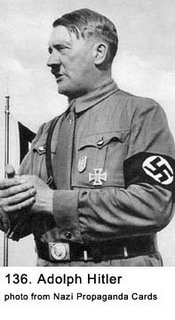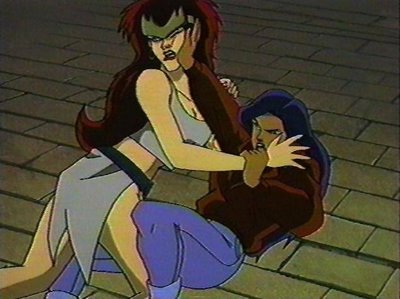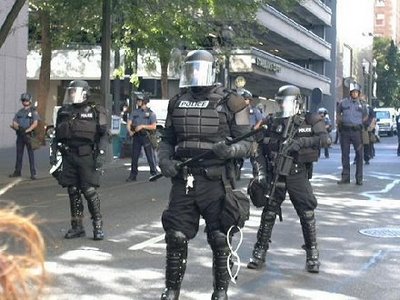 This is a column I wrote many years ago when I was a reporter. It stays with me to this day.
This is a column I wrote many years ago when I was a reporter. It stays with me to this day.When spring was new last year, among the beautiful live oak and pecan trees of the Hill Country, I met a little girl I will never forget.
She is the same age as my daughter -14 - yet her world is far removed from the typical teenage girl's universe.
There is no mascara in her purse. She doesn't have eyelashes.
Lip gloss, so carefully applied, does not shimmer on her lips. She no longer has lips.
She doesn't prance in high heels. She limps, it appeared, painfully and slowly, prosthesis apparent.
She doesn't talk about boys.
Fire destroyed this child's face. And fire almost destroyed her body. But she is no less human than you and I.
As I drove to Camp Lone Star, a camp for burn victims close to Austin, I tried to prepare myself for what I would encounter. I must have said to myself 100 times, "Be cool, be cool, don't react, at least outwardly."
I reacted, and I reacted badly.
I was in the dining hall, being introduced to staffers and doctors and nurses and therapists and volunteers, when I felt someone standing, quietly, directly behind me. I turned around and I saw her. I jumped.
The look in her eyes told me, "Don't worry, I'm used to it."
I hated myself, but I was totally and completely terrified. My heart raced and I couldn't breathe. "Oh God, no," I remember thinking over and over again.
Nothing could have prepared me for the sight of this child.
There was an off-center hole where her nose used to be, and the scar tissue had matted and twisted great uneven globs of black skin from just below her eyes downward.
Her eyes were brown, but they were diminished by the bright red insides of the lower portion of her eyes - where her tear ducts used to be - pulled and stretched down by the tightness of the scar tissue.
What was left of her bottom lip was also distorted by the downward pulling of the scar tissue, so much so that her bottom lip seemed to be turned inside out, with the pink of the inside of her mouth taking the place of the lip.
And that was just her face. Her body had been consumed in much the same fashion.
We looked at each other for perhaps one minute, then she turned and slowly walked away. I sat down. My mind raced. I wanted to run.
But I didn't. I stayed and although I'm not much of a camper, I can honestly say I'm glad I met those children, many of whom were experiencing their first-ever weekend camp.
Some were quiet. Some weren't. One little boy, 8 years old and full of sass, spent every available moment flirting with me, stroking the ego. "Oh, come on, you're not a day over 24," he said with a straight face. I loved that child.
I met three young sisters, 15, 14, and 12, who were severely burned when a tractor-trailer crashed into their moving van, throwing them out of the van and covering their bodies with burning diesel. Their father had finally gotten a job and they were on the way to the promised land, Texas. They spent their first two months in Texas in a hospital, in the burn unit.
I met a little boy who quizzically looked at his doctor and said, "You look like my doctor." The physician-surgeon-healer laughed and said, "I am your doctor."
The little boy didn't believe him. "But you're not hurting me," this child said to his torturer.
The children swam in the turquoise pool; they fished off the bank of the pier on the lake. They made "critters," rocks with two "eyes glued on them, and they threw Frisbees. They raced each other and they sat around the campfire, no fear visible, as they sang traditional camp songs.
The cabin was abuzz with teenage whispering and giggling when a wild rumor spread through camp that the boys were planning a panty raid on us. Nothing materialized, but anticipation was high and fun was had.
The only one that didn't ooh and aah over this cute boy or the "hunk" was the little girl without a face.
Many times, I started to go up to her and ask if she would take a walk with me and talk about herself. Each time I told myself no.
This was her weekend. This was her chance to play. This was her chance to fit in, to be like the others. This was OK.
The questions remain. Does she have dreams like you and I? What does the future hold for her? Does she want someday to have a career, get married, have children, have grandchildren?
Does she like pretty clothes? What kind of car would she like to drive? Does she like school? Does she believe in a higher power? Does she ask herself, "Why did this happen to me?" Does she cry anymore?
I cried when I got home. I made my daughter and son sit on the couch while I looked at their faces.
One by one, I touched their eyebrows and felt the incredible softness and smoothness of their foreheads and their cheeks and their skin, and I marveled at their beauty.
I had never noticed before that my son's eyelashes, black as night, touch his upper cheek when he closes his eyes. I had never seen my daughter's fine, high cheekbones.
I looked at their faces, and I remembered her.

























